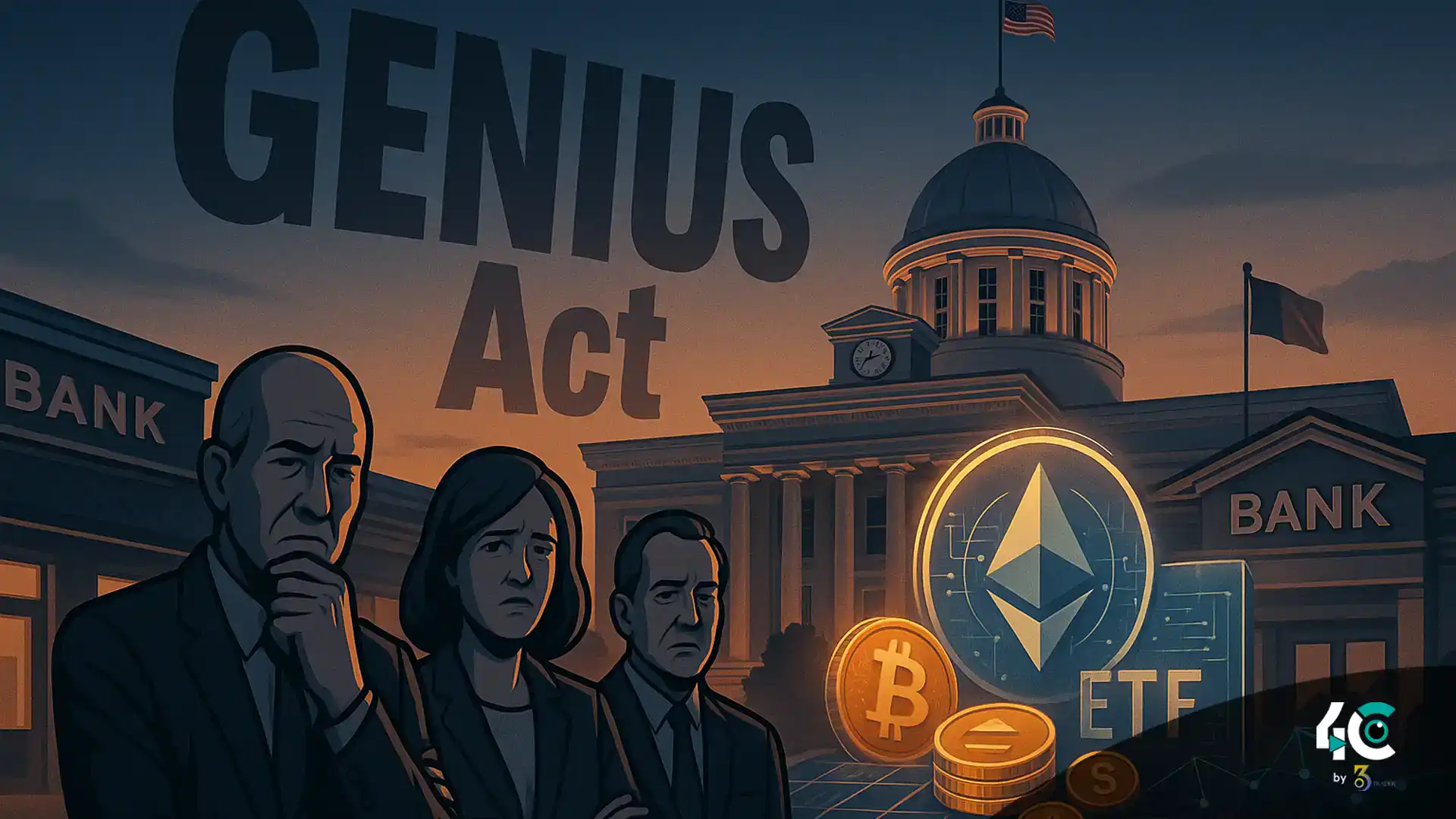Senator Raises Red Flag on Stablecoin Law
Two months after the GENIUS Act was signed into law by U.S. President Donald Trump, Senator Keith Kelley raised alarm over what he calls a “dangerous loophole.”
In an op-ed for 1819 News, Kelley said that the legislation might motivate clients to withdraw money from local community banks in favor of rewards offered by crypto platforms.
Kelley emphasized that community banks rely on local deposits for funding, unlike larger banks. If deposits fall, their ability to issue loans to individuals, families, and small businesses will be restricted.
He added that the consequences for rural areas—especially Alabama’s farming communities where margins are slim and cash flow is inconsistent—could be severe.
The GENIUS Act: Game Changer or Risk?
The GENIUS Act, adopted on July 18, aims to offer regulatory clarity to stablecoin issuers in the United States.
Supporters argue it will boost innovation and strengthen America’s position in the digital asset economy.
However, Kelley and critics like former CFTC Chair Timothy Massad warn that loopholes remain, allowing both foreign and domestic platforms to exploit the law.
The law bans stablecoin issuers from paying interest or yield directly to holders, but does not explicitly prevent affiliates or exchanges from offering crypto rewards. Kelley calls this “regulatory arbitrage.”
Also Read : Trust Wallet Enables Self-Custody Users to Access Tokenized Stocks and ETFs
Banking Sector Sounds Alarm on Deposit Flight
Kelley’s concerns mirror those of the Bank Policy Institute, which estimated that the GENIUS initiative could lead to deposit outflows of up to $6.6 trillion from traditional banks.
If such a shift occurs, community banks would lose significant lending power, weakening support for small businesses, families, and rural development.
Kelley argued that letting crypto firms operate like banks without following the same rules isn’t innovation—it’s a direct threat to American families and local economies.
What’s Next for the GENIUS Act?
Although passed, the law is not yet fully in effect. The U.S. Treasury and the Federal Reserve are still developing the regulatory framework.
Since August, public consultations have been launched to address illicit financial activity. However, detractors claim these consultations overlook the risks to deposits and fail to close loopholes for foreign issuers.
Ultimately, it will be up to U.S. lawmakers to decide whether the GENIUS Act strikes the right balance between competition and financial stability—or whether, as Kelley warned, it will leave rural America behind.



























